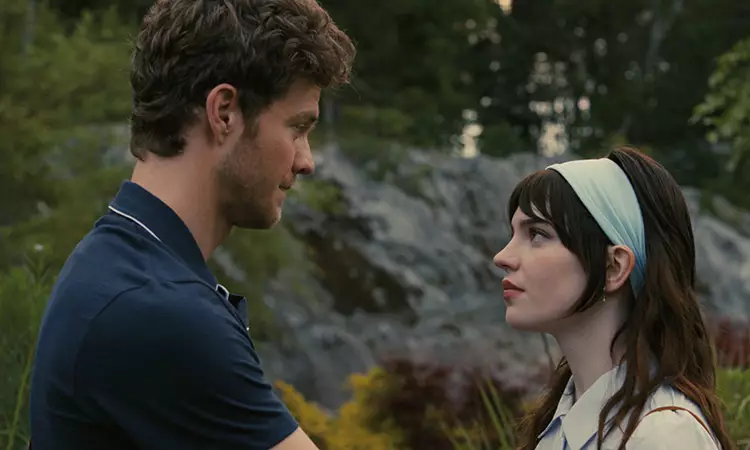In a landscape where the boundaries between sci-fi, comedy, and horror have increasingly blurred, Drew Hancock’s debut feature film, *Companion*, emerges as a notable examination of contemporary relationships. Drawing influences from feminist science fiction, Hancock weaves a tapestry that delves into the dystopian undercurrents of modern love amidst an over-commercialized society. The film cleverly juxtaposes elements of horror with humor, making it a unique commentary on human connectivity in a digital age.
With the captivating Sophie Thatcher starring as Iris, the narrative unfolds as she embarks on a getaway with her boyfriend Josh, played by Jack Quaid, who channels a delightful mix of charm and manic energy akin to iconic horror figures. Their chosen retreat—an isolated lakeside home owned by the dubious Sergey, portrayed masterfully by Rupert Friend—serves as the perfect backdrop for the film’s intricate exploration of interpersonal dynamics. The ensemble cast, including Harvey Guillén and Megan Suri, complements Thatcher and Quaid, creating a rich interplay of characters who mirror the complexities of modern relationships.
*Companion* resonates deeply within the context of today’s dating scene—a world where technological advancements have transformed the search for meaningful connections into a chaotic game of mixed signals. Hancock astutely acknowledges this by embedding references to iconic films like *The Stepford Wives* and *Ex Machina*, drawing parallels to the emotional dissonance created by dating apps and social media. The film confronts the viewer with a stark realization: in a society where commodification overrides authenticity, love often becomes transactional, breeding confusion and disillusionment among all genders.
The underlying themes of the film echo Alderman’s sentiments on utopias and dystopias coexisting. Each character in *Companion* embodies differing perspectives influenced by societal pressures and personal experiences. The momentary respite of their vacation unravels into surreal chaos, challenging their perceptions of trust and companionship. As the narrative progresses, the evolving dynamics among the characters expose the fragility of relationships when faced with external forces, a reflection on how contemporary living can distort and undermine genuine human connections.
What sets *Companion* apart is its ability to balance humor with biting commentary, turning the horror genre into a lens through which we can critique societal norms surrounding love and relationships. Hancock’s screenplay is intricately layered, inviting audiences to laugh while simultaneously sparking dialogue around the absurdity of modern courtship. The film’s comedic elements allow it to traverse uncomfortable territory without alienating viewers, making it a potential crowd favorite for debate after the credits roll.
Drew Hancock’s *Companion* is more than just a sci-fi comedy-horror. It serves as a poignant reflection on the dual nature of relationships in a world increasingly governed by technology and societal expectations. By cleverly mixing humor with horror, Hancock captures the complexities of love, making audiences ponder: Is it time to reset our understanding of companionship in a world that so often fails to connect genuinely?

